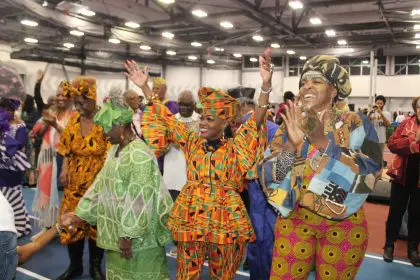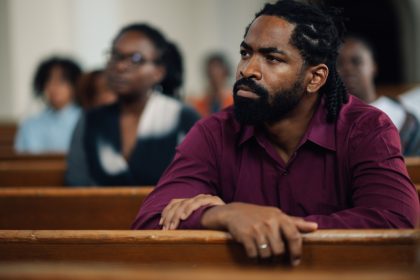Faith has served as a cornerstone of human experience for millennia, providing comfort, guidance, and purpose to billions worldwide. Beyond individual spiritual connections, belief in God often transforms how people navigate life’s challenges and celebrate its joys, creating ripple effects through families and communities.
Finding strength in faith
During life’s most challenging moments, many find that belief in God provides an anchor of stability. This spiritual connection often helps people reframe difficulties as opportunities for growth rather than insurmountable obstacles. The practice of prayer or meditation becomes a source of comfort, helping manage anxiety and stress during uncertain times.
This resilience extends beyond personal practice into faith communities, where shared beliefs create support networks. Regular gatherings, whether in houses of worship or informal settings, allow people to draw strength from collective faith experiences and mutual encouragement.
Values and decision-making
Religious beliefs often shape how individuals approach daily choices and long-term decisions. Many find that their faith provides a framework for handling ethical dilemmas and personal challenges. This moral compass influences everything from career choices to relationship decisions.
The integration of spiritual values into daily life creates patterns of behavior focused on integrity and compassion. People frequently report that considering their beliefs helps them maintain perspective when facing difficult choices or navigating complex situations.
Strengthening relationships
Faith often serves as a binding force in relationships, particularly within families. Couples who share spiritual practices frequently describe deeper connections and better communication. Parents find that teaching children about faith helps instill values and create meaningful family traditions.
Communities built around shared beliefs often develop strong support systems that extend beyond religious services. These connections foster environments where people feel understood and supported through life’s transitions.
Navigating adversity
Faith provides many with a unique perspective on life’s challenges. Rather than viewing difficulties as random misfortunes, believers often see them as part of a larger purpose. This outlook helps maintain hope during trying times and offers comfort when facing loss or uncertainty.
The practice of turning to prayer or spiritual reflection during hardship helps many find peace amid turmoil. Religious texts and teachings often provide examples of perseverance that inspire believers facing their own struggles.
Cultivating gratitude
Religious practice frequently emphasizes gratitude as a central element of faith. Regular acknowledgment of blessings, whether through formal prayers or personal reflection, helps develop an appreciative mindset. This focus on gratitude often extends beyond religious contexts into daily life.
The habit of recognizing life’s gifts, both large and small, contributes to emotional well-being. People who maintain grateful perspectives often report greater satisfaction with life and stronger interpersonal relationships.
Community impact
Faith-based communities often become catalysts for positive social change. Religious organizations frequently lead initiatives addressing social needs, from local food banks to international humanitarian efforts. This outward focus helps transform individual beliefs into collective action.
Many significant social movements throughout history have drawn strength from religious convictions. Faith communities continue to play vital roles in addressing contemporary challenges, from poverty to environmental stewardship.
Personal transformation
The impact of faith often manifests in personal growth and character development. Many describe their spiritual journey as a continuous process of learning and transformation. This evolution frequently influences how people view themselves and their role in the world.
Regular religious practice often helps individuals develop disciplines that benefit other areas of life. The habits of reflection, service, and community engagement fostered by faith communities can enhance personal and professional development.
Building lasting legacy
Faith often shapes how people think about their impact on future generations. Many believers consider their spiritual heritage as important as material inheritances. This perspective influences how they approach family life, community involvement, and long-term planning.
The transmission of beliefs and values creates continuity across generations. Religious traditions often provide frameworks for marking life’s milestones and maintaining family bonds.
Looking forward
As society continues to evolve, faith remains a significant force in shaping individual lives and communities. While expressions of religious belief may change, the fundamental human need for spiritual connection and meaning persists.
The power of believing in God continues to manifest in various ways, from personal transformation to societal change. For many, faith provides not just answers to life’s big questions but also practical guidance for daily living.
This story was created using AI technology.

















